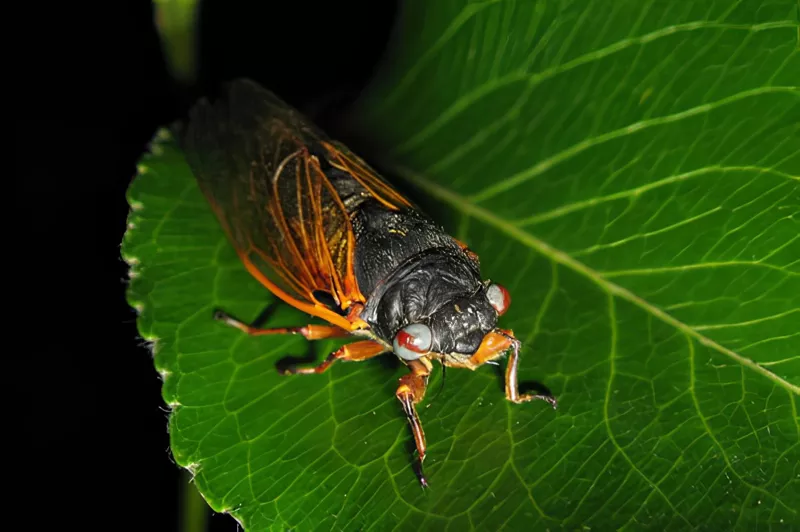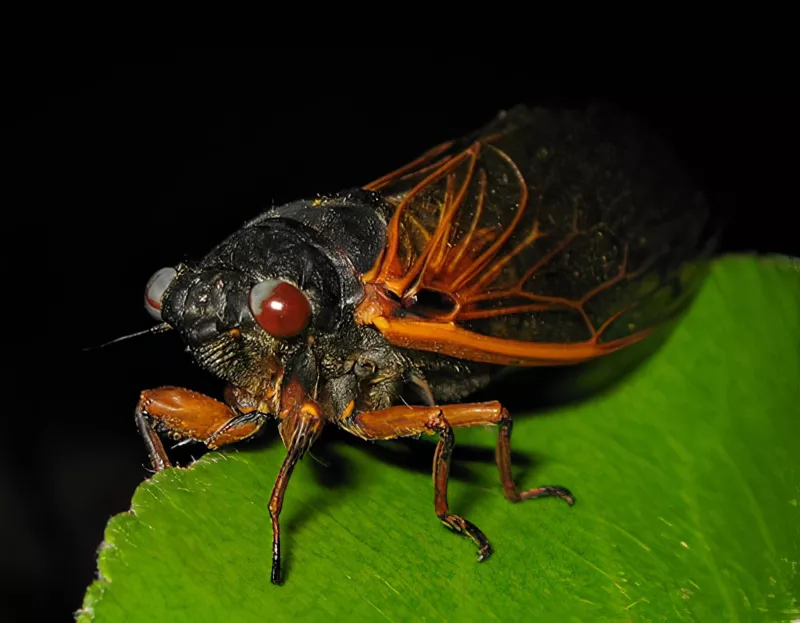The big question right now is: “when will the cicadas be gone?” Alas, for some, their charm has dwindled.
Based on my experience maintaining this site over the past 12 years, emergences tend to last about 6 or 8 weeks from the emergence of the first adult until the last cicada dies. That timespan is for the entire emergence, covering all locations in every affected state. The emergence for you in your specific location should last around 4 weeks: 1 week to emerge, 2 weeks of singing and mating, 1 week of egg laying and dying. Most cicadas don’t follow that precise game plan, but that’s the basic idea: 4 weeks. Cicadas that emerged on June 1st, should be gone before the 4th of July.
BTW, based on the number of messages and emails I’ve received, Brood XIV appears to be a bigger event than Brood XIII. Brood XIII received more press (because it overlapped Chicago), but from my vantage point, Brood XIV is turning out to be the more exciting emergence.








